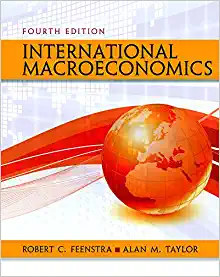Question
Please explain your answers briefly to support your answer thank you! I just really need correct answers thanks 1. A company usually do not need
Please explain your answers briefly to support your answer thank you!
I just really need correct answers thanks
1. A company usually do not need adjustments when entering a culture similar to its own, but it must be quite careful to heed subtleties both in host-country behaviors and in host-country perceptions of foreigners' behaviors.
TRUE
FALSE
2. People communicate through spoken, written, and silent language all governed by culturally determined cues.
TRUE
FALSE
3. Comparative advantage theory also proposes specialization through free trade because it says that trade can increase total global output even if one country has an absolute advantage in the production of all products.
TRUE
FALSE
4. Collectivism endorses the primacy of personal freedoms in the political, economic, and cultural realms.
TRUE
FALSE
5. Political and legal systems converge and vary across countries in terms of guiding principles and practical routines.
TRUE
FALSE
6. The international product life cycle (PLC) theory states that companies will manufacture products first in the countries in which they were researched and developed, which are almost always developing countries.
TRUE
FALSE
7. When operating abroad, companies should not adjust to their usual methods of carrying out business.
TRUE
FALSE
8. According to the country-similarity theory, most trade today occurs among developed countries because they share similar market characteristics and because they produce and consume so much more than developing economies.
TRUE
FALSE
9. A command economy endorses the doctrine of communism, its principle of an activist government that commands and controls most if not all factors of production, and the goal of constraining economic freedom.
TRUE
FALSE
10. The General Agreement on Tariffs and Trade (GATT), begun in 1947, created a continuing means for countries to negotiate the reduction and elimination of trade barriers and to agree on simplified mechanisms for the conduct of international trade.
TRUE
FALSE
11. Countertrade is any one of several different arrangements by which products are traded in transactions that do not involve cash or credit.
TRUE
FALSE
12. The factor-proportions theory holds that a country's relative endowments of land, labor, and capital will determine the relative costs of these factors. These factor costs, in turn, determine which goods the country can produce most efficiently.
TRUE
FALSE
13. In a command economy, the government plans what goods and services a country produces, the quantity in which they are produced, and the price at which they are sold.
TRUE
FALSE
14. The theory of comparative advantage proposes specialization through free trade because consumers will be better off if they can buy foreign-made products priced more cheaply than domestic ones.
TRUE
FALSE
15. Trade controls that directly affect quantity and indirectly affect price include tariffs, subsidies, arbitrary customs valuation methods, and special fees.
TRUE
FALSE
16. A company's competitive strategy and resources influence how and where it can best operate.
TRUE
FALSE
17. Democracy champions the authority of the many over the few. A democratic government protects personal and political rights, civil liberties, fair and free elections, and independent courts of law.
TRUE
FALSE
18. Political risk is the likelihood that political decisions, events, or conditions will affect a country's business environment in ways that (1) cost investors some or all of the value of their investments, (2) force them to accept lower-than-projected rates of return, and (3) threaten the sustainability of local activities.
TRUE
FALSE
19. The higher the pressure for global integration, the greater the need to concentrate configuration and standardize coordination.
TRUE
FALSE
20. People fall into social-stratification systems according to their ascribed and acquired group memberships, which influence their level of access to economic resources, prestige, social relations, and power.
TRUE
FALSE
Step by Step Solution
There are 3 Steps involved in it
Step: 1

Get Instant Access to Expert-Tailored Solutions
See step-by-step solutions with expert insights and AI powered tools for academic success
Step: 2

Step: 3

Ace Your Homework with AI
Get the answers you need in no time with our AI-driven, step-by-step assistance
Get Started


